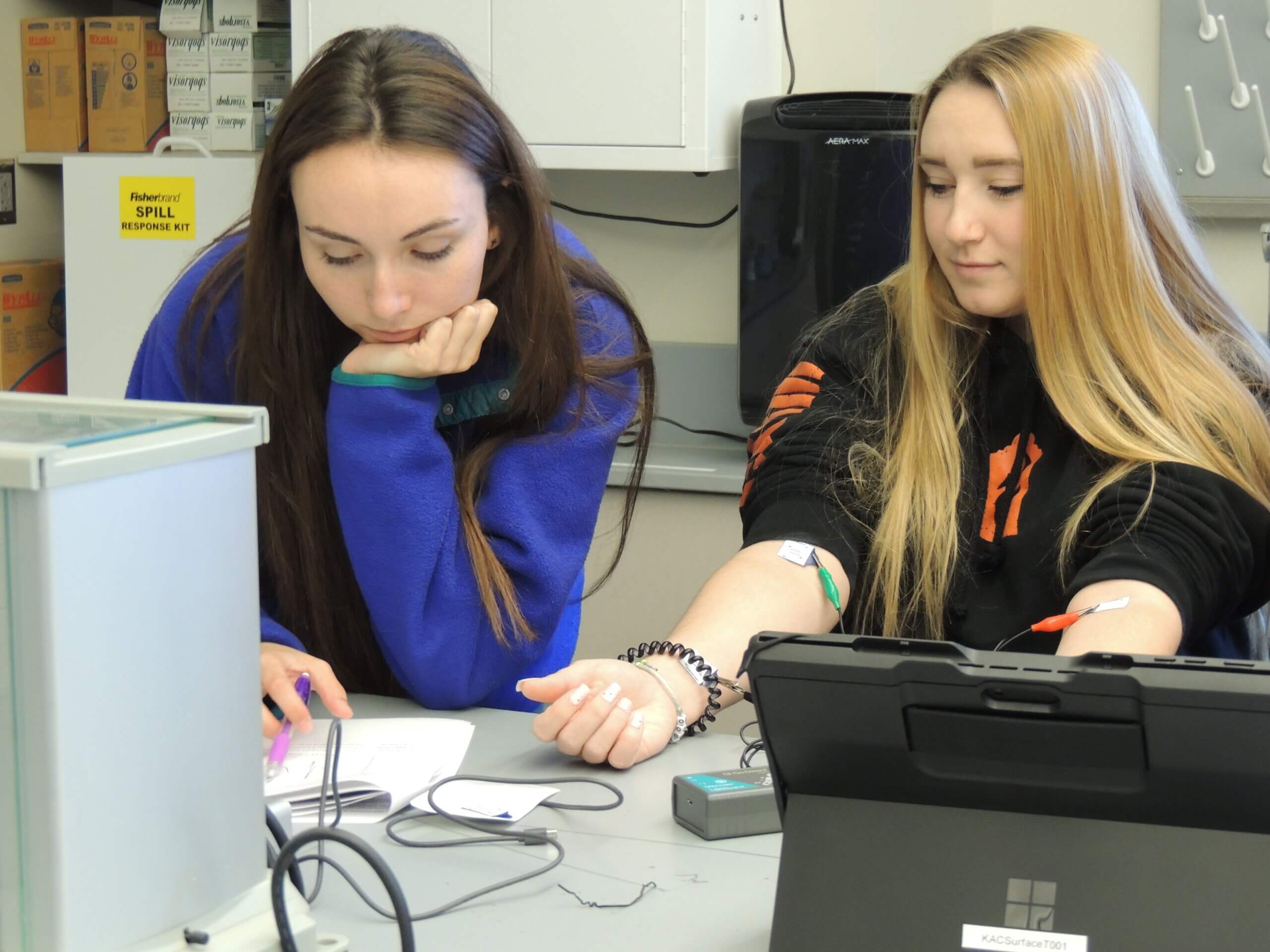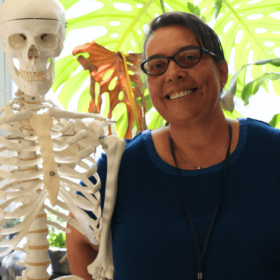Overview
The Associate of Arts in Liberal Arts with a Concentration in Science is designed for students who are interested in a science-related career. Courses in the Science Concentration prepare students for further study in biology, biotechnology, bioinformatics, microbiology, biomanufacturing, environmental science, forensic science, genetic counseling, chemistry, veterinary science, and premedical studies. This program provides opportunities for students to explore a range of interests and apply scientific thinking in a wide variety of fields. For example, a student interested in forensic science could take biology, chemistry, forensic psychology, statistics, and an analytical writing course to prepare for further study in the field. This program enables students to smoothly transfer to four-year degree programs to advance their knowledge and career opportunities.
Explore
The AA in Liberal Arts-Science Concentration provides students with opportunities to explore the sciences along with other academic fields that are inherently integrated with science. Students who are interested in transferring to BA/BS programs in biology or health science will be advised to take the traditional sequence of science and math courses complimented by study in the gamut of other liberal arts courses. Students who are interested in science but unsure of the specific sub-discipline in which they might want to work or pursue further study will work with an advisor to choose courses that allow them to explore their interests in the sciences as well as other areas in the liberal arts.
Why RVCC?
Liberal Arts at River Valley caters to each students’ passions to help them succeed in the job field or in their next academic steps.
Career Options
- Transfer to any four-year institution!
What are you interested in?
We have just expanded our Liberal Arts Associate of Arts degree to include areas of concentration. This flexibility aligns with students exploring various academic pathways in their first two years of college.
The Associate of Arts in Liberal Arts aspires to create a community of inspired learners by offering challenging courses designed to cultivate scholarly inquiry, social responsibility and academic integrity. Liberal Arts faculty create a rigorous academic environment, characterized by mutual respect and collegiality, in which students are encouraged to discover their true potential and purpose.
Program Goals
The goal of the Liberal Arts program is to engage students in study across multiple disciplines with the goal of cultivating a broad knowledge base and strong skill set that prepares students for the workforce or continued study towards a bachelor’s degree. Through study in the arts, humanities, social sciences, mathematics and sciences, students learn to think critically, communicate in multiple mediums, conduct research, solve complex problems, demonstrate ethical reasoning and system thinking, and grow as globally responsible citizens.
Program Outcomes
Upon completion of the Liberal Arts program, students will be able to:
- Synthesize and apply knowledge from multiple perspectives to evaluate social, ethical, cultural and global issues
- Assimilate a variety of intellectual and practical skills to solve sophisticated problems
- Communicate complex ideas and concepts both orally and in writing across multiple disciplines
- Address real-world problems by exercising mental agility, analytical and creative thinking and interpersonal negotiation
- Develop a foundation sufficient for transfer to a four-year college or university
Science Concentration*
(*Students should consult their content advisors for appropriate major courses which are dependent upon their career and transfer goals and objectives.) If students are transferring to a four-year program focusing on Biology or Chemistry fields:- Lab Science Electives: students are advised to take BIOL101R (bio 1), BIOL102R (bio 2), CHEM140R (chem 1), and CHEM141R (chem 2) for their first 4 lab science electives and either BIOL205R (micro)/BIOL201R (A&P 1)/BIOL202R (A&P 2) for their 5th lab science course. Any additional lab science courses could be taken using the two “open elective” course requirements.
- Mathematics Electives: students are advised to take either MATH110R (functions and modeling 1), MATH120R (functions and modeling 2), MATH210R (calc 1), MATH 211R (calc 2), or MATH106R (stats 1) for their three math elective courses, depending on what field they want to study after transferring to a four year degree program. Any additional math courses could be taken using the two “open elective” course requirements.
Course Sequencing
First Year: Fall Semester
Social Science Elective
Total Credits: 3 – 4
Humanities/Fine Arts/World Language Elective
Total Credits: 3 – 4
Lab Science Elective
Total Credits: 4
Mathematics Elective
Total Credits: 3 – 4
First Year: Spring Semester
200-Level English Elective
Total Credits: 3 – 4
Social Science Elective
Total Credits: 3 – 4
Lab Science Elective
Total Credits: 4
Open Elective
Total Credits: 3 – 4
Mathematics Elective
Total Credits: 3 – 4
Second Year: Fall Semester
Humanities/Fine Arts/World Language Elective
Total Credits: 3 – 4
Social Science Elective
Total Credits: 3 – 4
Open Elective
Total Credits: 3 – 4
Mathematics Elective
Total Credits: 3 – 4
Lab Science Elective
Total Credits: 4
Second Year: Spring Semester
Liberal Arts Elective
Total Credits: 3 – 4
Humanities/Fine Arts/World Language Elective
Total Credits: 3 – 4
Lab Science Elective
Total Credits: 4
Lab Science Elective
Total Credits: 4
Julie Robinson (she/her)
Biological Science | Healthcare Applications | Liberal ArtsProfessor & Department Chair, Biological & Health Science
60-62 Credits Required



 STEM and Advanced Manufacturing
STEM and Advanced Manufacturing